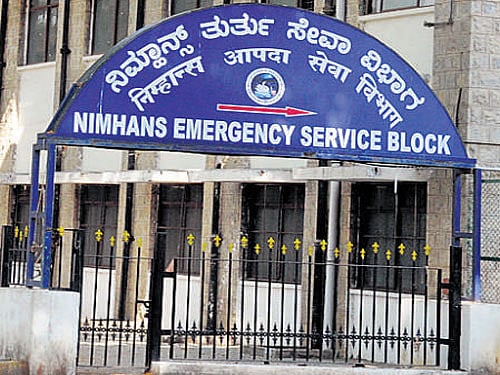
The National Institute of Mental Health and Neuro Sciences (NIMHANS) has for the first time in the country launched two exclusive specialisations, Neuro Pathology and Addiction Medicine, in its educational programme to help patients and set a precedent to other institutions to generate more specialists.
Nimhans Director Dr P Satishchandra told Deccan Herald: “Nowhere in the country do we have a specialisation in neuro pathology and addiction medicine, while the demand for experts is very high. Nimhans has decided to launch this on its own to help patients, who otherwise cannot approach any institution for treatment. The Central and State governments have been helping us in setting up infrastructure for the new specialisations.”
The training will enable the students to go to other centres in Karnataka and outside the State as well, and set up new treatment centres in neuro pathology and addiction treatment. “The trained students will act as teachers and train others. We want to create a body of experts to be able to handle the high number of patients,” Dr Satishchandra said.
Neuropathology, practitioners say, studies the disease of nervous system tissue, usually in the form of either small surgical biopsies or whole autopsies.
“Neuropathologists around the world have made important clinical and research contributions towards understanding of diseases that specifically affect the brain - degenerative diseases, multiple sclerosis, stroke, brain tumors, trauma and neuromuscular diseases. If a disease of the nervous system is suspected, and the diagnosis cannot be made by less invasive methods, a biopsy of nervous tissue is taken and sent to the neuropathologist, who examines it using a microscope or certain molecular methods to make a definitive diagnosis,” says a neuro specialist.
Practitioners point out that the work of the neuropathologist is largely about examining biopsy tissue from the brain and spinal cord to aid in diagnosis of disease.
“The biopsy is usually requested after a mass is detected by radiologic imaging. As for autopsies, the principal work of the neuropathologist is to help in the post-mortem diagnosis of various forms of dementia and other conditions that affect the central nervous system. In the day-to-day clinical practice, a neuropathologist is a consultant for other physicians,” a specialist says.
Dr Satishchandra says that the country having just one centre is not good: “There is so much demand, but where are the specialists? Is it possible to go far and get treatment, which has to be at hand?
“Since we do know that there is a need for multiple treatment centres across the country, we have felt there needs to be an institutional response to this and that’s why Nimhans has taken the initiative.”
The Nimhans director said addiction medicine would be “focussed on eliminating addiction to tobacco, alcohol or even to technology.” Addiction medicine is a medical specialty that deals with the treatment of addiction. The specialty often crosses over into other areas such as public health, psychology, social work, mental health counseling, psychiatry, and internal medicine, among others.
Long-term therapies
The specialty looks into the processes of detoxification, rehabilitation, harm reduction, abstinence-based treatment, individual and group therapies, oversight of halfway houses, treatment of withdrawal-related symptoms, acute intervention, and long-term therapies designed to reduce likelihood of relapse. Some specialists, primarily those who also have expertise in family medicine or internal medicine, also provide treatment for disease commonly associated with substance use, such as hepatitis and HIV infection. Nimhans is expecting a good response to both the specialisations over the next three years.
